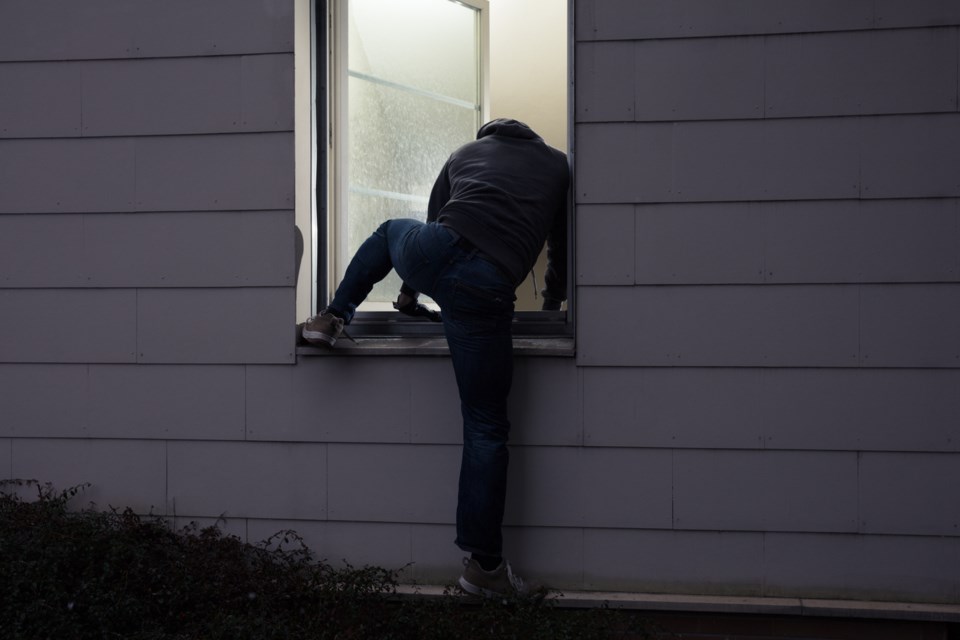A 32-year-old man charged with three residential break-ins, including one in Burnaby, has been released from jail on conditions a lower court judge dismissed as “sheer lunacy” because of the man’s history of crime and repeated bail violations.
Brandon Travis Duncan was among four men arrested on Nov. 30, 2017 after a burglary at a house at 6258 Empress Ave., according to a B.C. Supreme Court ruling last Thursday.
Duncan had been on parole at the time after serving three years for an earlier residential break-in, according to the ruling.
He was released on bail three times after the Burnaby break-in and racked up charges for two more B&Es, for allegedly lying to police officers on two different occasions and for numerous other bail breaches and no-shows at court.
At a fourth bail hearing in October, B.C. provincial court Judge Maria Giardini finally denied him bail.
His lawyer had proposed bail conditions that would see Duncan attend Vision Quest, a residential drug rehab program in Logan Lake, for at least six months and then work in his brother’s fishing business.
Giardini rejected that plan as “sheer lunacy” given Duncan’s history of criminality and breaking bail, according to court documents.
She ruled the danger Duncan posed to the public “cannot be prevented or reduced by releasing him on conditions.”
B.C. Supreme Court Justice Nigel Kent disagreed.
After a detention review hearing on April 7, Kent released Duncan last Thursday on bail conditions nearly identical to those Giardini had rejected.
He said he was satisfied Vision Quest’s isolated residential program and strict mobility restrictions, along with Duncan's genuine intention to deal with his addiction problems, reduced any risk to public safety to an acceptable level.
Kent also noted Duncan, a member of the Musqueam First Nation, was the grandson of three residential school survivors and had suffered serious disadvantages in life rooted in “the sad social problem that is the legacy of the mistreatment of Aboriginal Peoples in Canada.”
Kent concluded releasing Duncan on strict conditions to attend Vision Quest and then work for his brother was in keeping with Supreme of Court of Canada precedents calling on judges to consider an Indigenous accused's background factors when deciding on sentences and bail.



